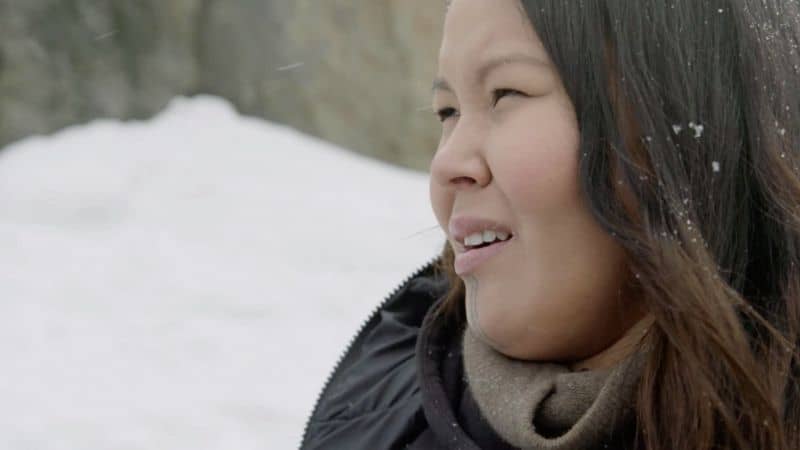Greenland used to have a very bad reputation as a huge chunk of inhospitable land in the far north populated by suicidal alcoholics. To a certain extent that image still lingers, but a young generation of Greenlanders are full speed ahead in changing that. They look ahead. Into a future of many unknowns, and they do not fully agree on how to embrace it.
This is the formal outline of a heartwarming and intelligent documentary about present-day Greenland. It is the world’s largest island, four-times larger than Spain, but with a population of only 54,000 with at least one thing in common – a deep love for their country. In these years, they try to relate to a common goal, independence from Denmark.
Chinese interests
The story is told through four young Greenlanders from very different walks of life. One remarkable voice is Tillie, an upcoming politician that gets elected to the local parliament in the capital, Nuuk. She is among the 20 percent of the population who are mainly Danish speakers, which is part of the tragedy. She was removed from home at the age of eleven and grew up in an orphanage in Denmark, and therefore she speaks her own language poorly. In spite of all, she believes in a gradual movement towards full independence. In her opinion, the hardcore independence movement is dominated by unrealistic populists.
Tillie is aware of the many trappings for a young nation in the post-colonial era. She reminds us that the Danes tried to make the Greenlanders Danish, which obviously led to disaster. Alcohol and drug abuse became abundant, and while that is under control, at least in the young generations, the suicide rate is still alarmingly high. This is too much to tackle alone for such a small population, she argues.
On top of this come the Chinese. There is only one international airport in all of Greenland, and China is willing to invest in the need for two more, plus a plethora of infrastructure projects. Beijing is offering 3.5 billion DKR as investment capital, equivalent to half of the annual GDP of Greenland. This is a known pattern. The Chinese invest heavily in a small nation and suddenly they own the country; their main interest is access to the Arctic, not the Greenlanders.
The Chinese invest heavily in a small nation and suddenly they own the country
The Danish prime minister arrives promptly, and on the spot, he promises to build the two additional airports. Angry pro-independence activists are demonstrating, and Tillie is unhappy as well. Why airports, she asks, when the real need is better schools? Airports are not the way out of colonialism.

Inuit Tattoos
On the opposite side, we meet Paninnguaq and Tarraq, a lovable young couple with two small children. Tarraq is a rapper – and a rather talented one, in this writer’s opinion – and he insists to create all his art in Greenlandic. Paninnguaq attends drama classes but quits because she can’t see herself to perform a cover version of Taylor Swift in English. All lyrics should be in Greenlandic.
Their background is similar to a lot of their countrymen. When Tarraq was six or seven his father left home, not to be seen ever since, and Paninnguaq tried to leave this world by jumping into the icy harbor of Nuuk when she was only sixteen. Now they are looking forward. For them, the only way for Greenlanders is to take full responsibility, and you only gain respect by being independent and proud of your own identity. Both have facial tattoos and old Inuit tradition.
for Greenlanders is to take full responsibility, and you only gain respect by being independent and proud of your own identity.
Kaaleeraq is another of the strong independence voices. He does not get elected to parliament, so in order to find a way to have his say he decides to become a journalist. He covers the Chinese bid, the promise of the Danish prime minister, he is appalled, and still, he has his personal dilemmas. Kaaleeraq has a serious eye ailment and is forced to travel to Copenhagen for treatment. At one of these brief visits, the doctor asks him if he is considering the move to Denmark, where treatment opportunities are much better. He hesitates, which is only natural but ends up saying that leaving Greenland is out of the question.
You get a deep understanding of these feelings and considerations by watching this film. Sweeping drone shots might seem a bit farfetched for this format, but still, it makes deep sense. In the end, we see Josef Tarrak standing on a rocky beach, and he remarks that in the modern world there are very few places where you can hear such an astounding silence.
A simple sentence that becomes deeply philosophical when you consider what it entails.



